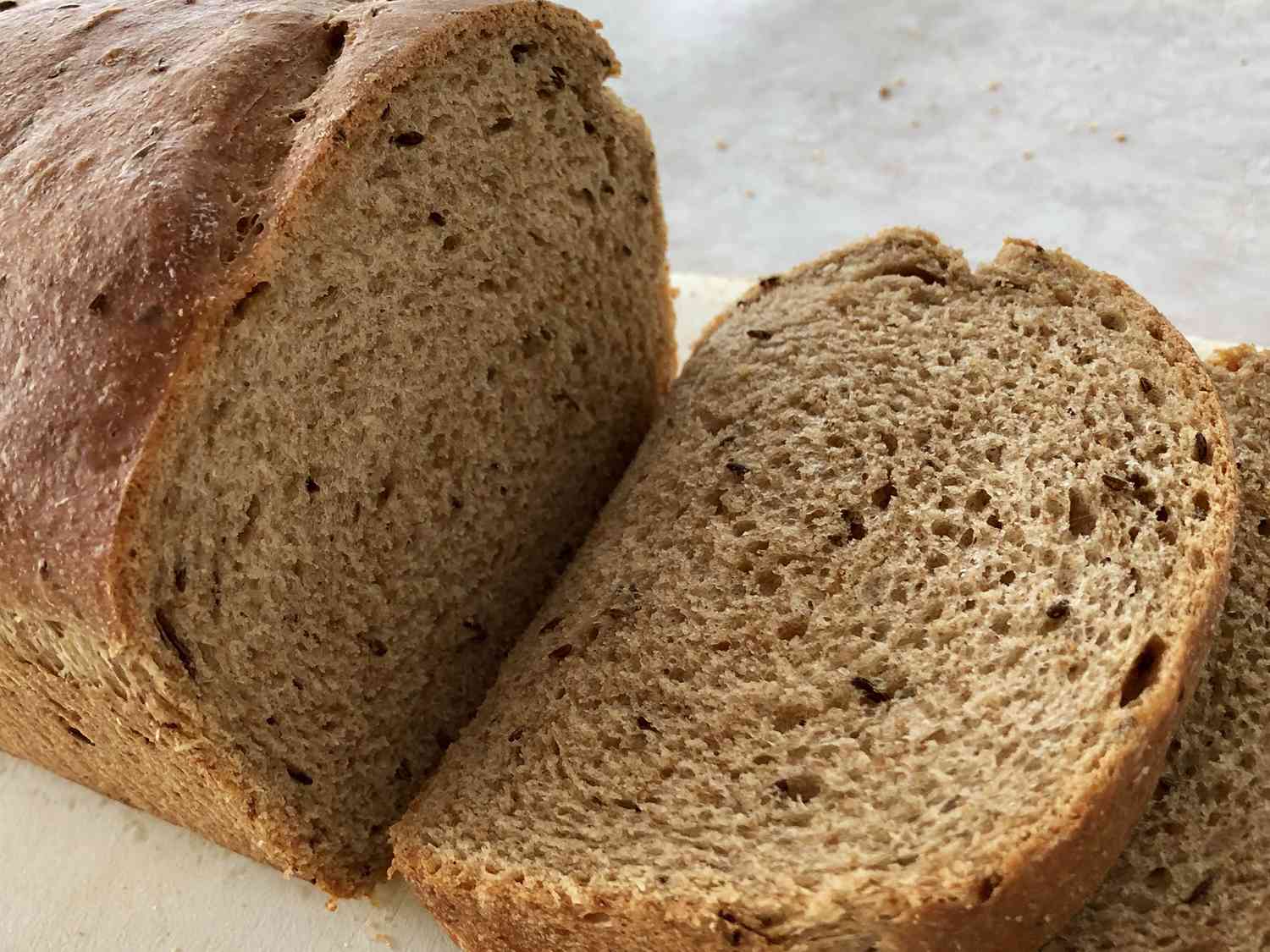
Rye bread is a beloved staple in many cuisines around the world. With its distinctive flavor, dense texture, and numerous health benefits, rye bread has become increasingly popular among both food enthusiasts and health-conscious individuals. Whether you enjoy a classic Reuben sandwich or a simple slice with butter, rye bread never fails to satisfy. But there’s more to this delicious loaf than meets the eye. In this article, we will explore 12 fascinating facts about rye bread that will deepen your appreciation for this versatile grain. From its ancient origins to its nutritional profile, join us on a journey to discover the wonders of rye bread.
Key Takeaways:
- Rye bread has a rich history and is packed with nutrients, making it a healthier choice than white bread for managing blood sugar levels and promoting digestive health.
- Rye bread’s unique flavor and dense texture make it a versatile ingredient that pairs well with both savory and sweet toppings, and can be used in various culinary applications beyond being enjoyed as a standalone bread.
Rye bread has been consumed for centuries.
Rye bread has a long history, dating back to ancient times. It was a staple food in many European countries, particularly in northern regions where rye crops thrived.
Rye bread is made from rye flour.
Unlike traditional wheat bread which is made from wheat flour, rye bread is made from rye flour. The distinct flavor and texture of rye bread come from the unique characteristics of rye flour.
Rye bread is rich in nutrients.
Rye bread is a nutritional powerhouse, packed with essential nutrients such as fiber, vitamins, and minerals. It is a great source of dietary fiber, which promotes digestive health and helps to regulate blood sugar levels.
Rye bread has a lower glycemic index compared to white bread.
Due to its high fiber content, rye bread has a lower glycemic index compared to white bread. This means that it causes a slower and steadier rise in blood sugar levels, making it a healthier choice for those watching their blood sugar levels.
Rye bread is known for its distinct flavor.
Rye bread has a unique and robust flavor that sets it apart from other bread varieties. The distinct taste is often described as slightly tangy, earthy, and nutty.
Rye bread is a staple in Scandinavian cuisine.
Rye bread plays a central role in Scandinavian cuisine, where it is commonly enjoyed with a variety of toppings such as herring, salmon, or cheese. It is often thinly sliced and used as a base for open-faced sandwiches known as “smørrebrød”.
Rye bread can be made using different techniques.
There are various methods for making rye bread, including sourdough fermentation, yeasted dough, or a combination of both. Each technique imparts its own unique characteristics to the final product.
Rye bread is gluten-friendly.
While rye bread does contain some gluten, it is considered more tolerable than wheat bread for individuals with gluten sensitivities. However, it is important to note that rye bread is not suitable for those with celiac disease.
Rye bread pairs well with savory and sweet toppings.
Rye bread’s versatile nature allows for a wide range of topping options. It complements both savory options like smoked salmon and cream cheese, as well as sweet toppings like honey and jam.
Rye bread has a denser texture compared to white bread.
Due to the lower gluten content in rye flour, rye bread tends to have a denser texture than white bread. This texture adds a satisfying chewiness to each bite.
Rye bread is known for its longer shelf life.
The natural acidity of rye bread helps to preserve it for a longer period of time compared to other bread varieties. This makes it an excellent choice for those who want to have bread on hand for extended periods.
Rye bread is a versatile ingredient.
Rye bread can be used in a variety of culinary applications beyond being enjoyed as a standalone bread. It can be transformed into croutons, breadcrumbs, or used as a base for bread pudding, adding a unique flavor dimension to various recipes.
Conclusion
In conclusion, rye bread is a delicious and nutritious option that offers numerous health benefits. From its rich fiber content to its potential role in reducing the risk of various diseases, rye bread is definitely worth adding to your diet. Its distinct flavor and versatility make it a popular choice among bread lovers. Whether you prefer it in sandwich form or as a crispy toast, rye bread is sure to satisfy your cravings. So, the next time you’re at the bakery, don’t forget to pick up a loaf of rye bread and enjoy its wonderful taste and health benefits.
FAQs
Q: Is rye bread gluten-free?
A: No, rye bread is not gluten-free. It contains gluten, which is a type of protein found in wheat and other grains. Individuals with gluten sensitivity or celiac disease should avoid consuming rye bread.
Q: How does rye bread differ from other types of bread?
A: Rye bread is made from rye flour, which gives it a distinct flavor and darker color compared to bread made with wheat flour. It also has a denser texture and is typically higher in fiber and lower in carbohydrates than other bread varieties.
Q: Can rye bread help with weight loss?
A: Rye bread’s high fiber content can contribute to feelings of fullness and aid in weight management. However, it is important to watch portion sizes and overall calorie intake as part of a balanced diet and a healthy lifestyle.
Q: Does rye bread have any specific health benefits?
A: Yes, rye bread offers several health benefits. It contains a variety of nutrients, including vitamins, minerals, and antioxidants. The high fiber content of rye bread can promote digestive health, regulate blood sugar levels, and reduce the risk of certain chronic diseases, such as heart disease and type 2 diabetes.
Q: Can individuals with wheat sensitivity or allergies eat rye bread?
A: Rye bread may not be suitable for individuals with wheat sensitivity or allergies as it contains gluten. It is important to consult with a healthcare professional or allergist before adding rye bread to your diet if you have any wheat-related allergies or sensitivities.
Q: How should I store rye bread?
A: To keep rye bread fresh, store it in a cool, dry place such as a bread box or pantry. It is recommended to avoid storing rye bread in the refrigerator, as it can dry out and become stale faster.
Q: Can rye bread be frozen?
A: Yes, rye bread can be frozen to extend its shelf life. Wrap it tightly in plastic wrap or place it in a resealable plastic bag before freezing. When ready to eat, thaw it at room temperature or toast it for a delicious and crispy texture.
Q: What are some popular ways to enjoy rye bread?
A: Rye bread can be enjoyed in a variety of ways. It is commonly used for sandwiches, such as classic pastrami or corned beef on rye. It also makes a perfect base for open-faced sandwiches with toppings like smoked salmon or avocado. Additionally, it can be used for toast, croutons, or as a accompaniment to soups and stews.
Rye bread's rich history, unique flavor profile, and impressive nutritional benefits make this hearty loaf a must-try for bread enthusiasts. Why not expand your culinary horizons by exploring the delicious world of Reuben sandwiches? These classic creations combine the robust taste of rye bread with savory fillings, creating a satisfying meal that's sure to tantalize your taste buds.
Was this page helpful?
Our commitment to delivering trustworthy and engaging content is at the heart of what we do. Each fact on our site is contributed by real users like you, bringing a wealth of diverse insights and information. To ensure the highest standards of accuracy and reliability, our dedicated editors meticulously review each submission. This process guarantees that the facts we share are not only fascinating but also credible. Trust in our commitment to quality and authenticity as you explore and learn with us.


